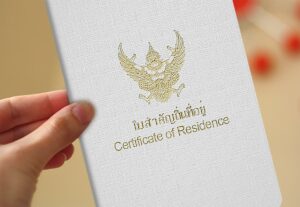The Thailand Smart Visa is a specialized long-term visa category introduced in 2018 by the Royal Thai Government to attract high-level professionals, foreign investors, technology-based entrepreneurs, and startup founders into the Kingdom’s innovation-driven sectors. It was conceived as a strategic policy tool to support Thailand’s transition under its Thailand 4.0 economic model—a government initiative that aims to position Thailand as a knowledge- and innovation-based economy.
This article provides an in-depth exploration of the Smart Visa program, including its legal foundations, visa categories, qualification pathways, regulatory stakeholders, and the practical and policy challenges it entails.
I. Legal and Policy Framework
The Smart Visa scheme was implemented by virtue of a Cabinet Resolution on January 16, 2018, and is regulated by inter-agency coordination among the:
-
Office of the Board of Investment (BOI)
-
Ministry of Foreign Affairs (MFA)
-
Immigration Bureau (IB)
-
National Innovation Agency (NIA)
-
Digital Economy Promotion Agency (DEPA)
Unlike traditional Non-Immigrant visas governed solely by the Immigration Act B.E. 2522 (1979), the Smart Visa is an exceptional visa class, relying on sectoral endorsements and qualifications.
The scheme is closely aligned with the Thailand 4.0 economic development policy and the government’s targeted S-Curve industries, which include robotics, aviation, medical services, digital technology, food innovation, and smart electronics.
II. Visa Categories
There are five Smart Visa categories, each with tailored eligibility criteria and privileges:
1. SMART “T” – Talent
For foreign professionals with expertise in science and technology working in targeted industries.
Key requirements:
-
Monthly salary of at least THB 100,000
-
Employment contract of at least 1 year
-
Employer must be in a BOI-promoted or targeted industry
-
Endorsement by relevant agencies (e.g., NIA, NSTDA)
2. SMART “I” – Investor
For individuals investing directly in technology-based companies in targeted industries.
Key requirements:
-
Investment of at least THB 20 million in a qualified company
-
Company must be in a targeted industry or promoted by BOI
-
Documentary proof of shareholding and investment
3. SMART “E” – Executive
For executives working in technology-focused companies.
Key requirements:
-
Minimum salary of THB 200,000 per month
-
Bachelor’s degree or higher with 10 years’ experience
-
Employment contract of at least 1 year
-
Company must be in targeted industry
4. SMART “S” – Startup
For startup founders in innovation or tech-based sectors.
Key requirements:
-
Establishment of a business in Thailand within 1 year
-
Ownership of at least 25% equity or a director position
-
Deposit of THB 600,000 in Thai bank account (held for 3 months prior to application)
-
Health insurance
5. SMART “O” – Other (Dependent)
Spouses and children of Smart Visa holders in the above categories are eligible for the SMART “O” visa.
They enjoy the right to live and, in many cases, work in Thailand without a separate work permit, subject to notification requirements.
III. Application and Endorsement Procedure
The Smart Visa application follows a dual-step process:
Step 1: Qualification Endorsement
Applicants submit documentation to the One Stop Service Center for Visa and Work Permit (OSS) at Chamchuri Square or to Thai Embassies/Consulates abroad. Relevant agencies—such as BOI, DEPA, or NIA—review the application and issue an endorsement letter if qualifications are met.
Processing time: 20 business days
Step 2: Visa Issuance
Once endorsed, the applicant may apply for the visa at a Thai Embassy, Consulate, or the OSS center (if already in Thailand).
Visa validity ranges from 1 to 4 years, depending on the category, contract length, and compliance record.
IV. Key Benefits and Distinctions
The Smart Visa was specifically designed to remove bureaucratic barriers for foreign professionals. Key advantages include:
-
No requirement for a separate work permit
-
Visa validity of up to 4 years
-
Annual reporting instead of 90-day reporting
-
Work permission for spouse and dependents
-
Simplified re-entry permit process
-
Centralized one-stop processing
Unlike Non-Immigrant B or O-A visas, Smart Visa holders are not tied to cumbersome Labor Ministry approvals or company quotas for hiring foreigners.
V. Regulatory Stakeholders and Oversight
Multiple agencies are involved in issuing, monitoring, and endorsing Smart Visas:
-
BOI: Handles most applications for SMART T, I, and E
-
NIA: Oversees startup endorsements under SMART S
-
DEPA: Focuses on applicants in the digital economy
-
Immigration Bureau: Enforces visa compliance and extensions
-
Ministry of Labour: Not involved unless work permit exceptions lapse
This inter-agency model promotes flexibility but also creates coordination complexity, especially in edge cases or status changes.
VI. Compliance, Revocation, and Renewal
Smart Visa holders are required to:
-
Maintain eligibility throughout the visa period (e.g., salary, investment)
-
Notify changes in employer, address, or job function
-
Renew endorsements before visa expiry
The Immigration Bureau may revoke a Smart Visa if:
-
The holder no longer meets the qualifications
-
The endorsement agency withdraws its approval
-
Misrepresentation or fraudulent documentation is discovered
Revocation entails immediate loss of legal stay and work authorization. Transitioning to another visa category requires separate processing.
VII. Comparative Perspective and Use Cases
The Smart Visa offers a more flexible alternative to:
-
Non-Immigrant B Visa: Requires labor approvals and employer sponsorship
-
Thailand Elite Visa: Allows long-term stay but not employment
-
LTR Visa (Long-Term Resident): Aimed more at retirees and wealthy individuals
Smart Visas have been used by:
-
Foreign researchers in joint university-private sector programs
-
Entrepreneurs launching fintech or biotech startups
-
Executives in BOI-promoted manufacturing and digital ventures
-
Foreign spouses engaged in part-time work or consulting
Adoption rates remain modest, largely due to strict qualifications and limited awareness outside of targeted industries.
VIII. Challenges and Criticisms
1. Eligibility Rigidity
-
High salary and investment thresholds may deter talented mid-career professionals.
-
Contract length requirements (1+ year) exclude freelancers or consultants.
2. Agency Bottlenecks
-
Inconsistencies between endorsement agencies may delay processing.
-
Lack of transparency in rejections or documentation requests.
3. Limited Industry Scope
-
Many innovative businesses fall outside the official “S-Curve” definitions.
-
Uncertainty about whether creative or social entrepreneurs qualify.
4. Low Integration with Broader Immigration Policy
-
No automatic path to permanent residency or naturalization
-
Smart Visa status is non-renewable beyond four years without re-endorsement
IX. Outlook and Policy Considerations
The Smart Visa is a progressive immigration instrument aligned with Thailand’s ambitions to become a regional innovation hub. However, its success depends on:
-
Expanding eligible industries, including climate tech, AI, education, and creative economy
-
Lowering financial thresholds for select categories or introducing “mid-tier” visas
-
Building automated case tracking and application interfaces
-
Aligning with tax incentives or startup incubator programs
Enhanced coordination with BOI’s investment promotions and integration into long-term economic residency plans will be key to ensuring the program scales effectively.
Conclusion
The Thailand Smart Visa stands as a strategic legal mechanism designed to attract global talent and technology-focused investment into priority sectors. While its regulatory architecture offers significant advantages—such as work permit exemption, long-term stay, and dependent work rights—it remains constrained by narrowly defined eligibility criteria and implementation inconsistencies.
Legal practitioners, HR managers, and business developers should view the Smart Visa not as a general-purpose work visa, but as a high-tier immigration tool for innovation-led mobility, best suited to structured companies and verified startups operating within Thailand’s 4.0 policy matrix.
You might also enjoy

Personal Data Protection Act
Personal Data Protection Act. The rapid expansion of digital commerce,

Thai Business Partnership
A Thai business partnership is one of the most commonly

Thailand Permanent Residency
Thailand Permanent Residency (PR) is a highly sought-after immigration status


